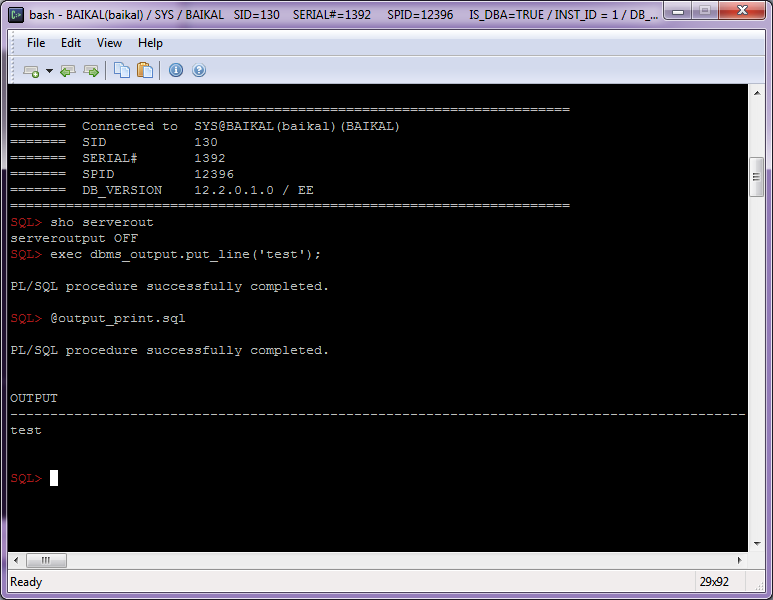When “serveroutput” is enabled, SQL*Plus executes “BEGIN DBMS_OUTPUT.GET_LINES(:LINES, :NUMLINES); END;” after each command.
That’s why I don’t like when it is always enabled: it adds extra calls and round-trips and it is inconvenient when I want to get a plan of the last executed query:
SQL> set serverout on;
SQL> select * from dual;
D
-
X
SQL> select * from table(dbms_xplan.display_cursor('','','allstats last'));
PLAN_TABLE_OUTPUT
--------------------------------------------------------------------------
SQL_ID 9babjv8yq8ru3, child number 0
BEGIN DBMS_OUTPUT.GET_LINES(:LINES, :NUMLINES); END;
NOTE: cannot fetch plan for SQL_ID: 9babjv8yq8ru3, CHILD_NUMBER: 0
Please verify value of SQL_ID and CHILD_NUMBER;
It could also be that the plan is no longer in cursor cache (check v$sql_plan)
So usually I switch “serveroutput” on only if needed, but sometimes I can forget to enable it. In such cases I use very simple script that reads the output using dbms_output.get_lines and prints it using refcursor:
https://github.com/xtender/xt_scripts/blob/master/output_print.sql

When you set “serveroutput on“, SQL*Plus also executes “dbms_output.enable” and if you set “serverout off” it executes “dbms_output.disable”, that’s why my glogin.sql contains “call dbms_output.enable(1e6);” and you need to execute it after each “set serverout off” if you want to use this script.
